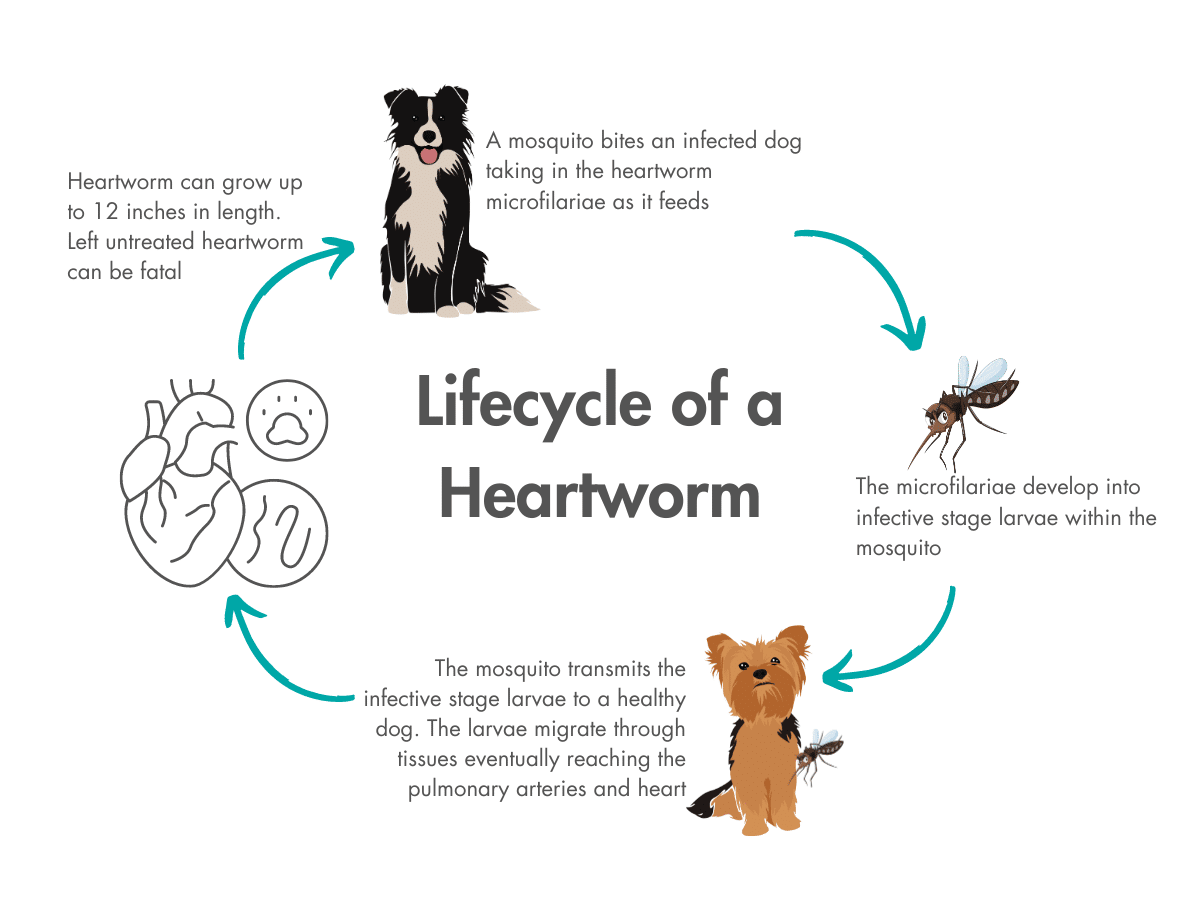The Lifecycle of Heartworms in Pets: A Mosquito-Borne Threat
The journey of a the heartworm in pets begins and ends with the unsuspecting involvement of a mosquito. When a mosquito feeds on an animal already infected with heartworms, it picks up microfilariae — the baby worms circulating in the infected animal’s bloodstream. These microfilariae undergo several stages of development within the mosquito, transforming into infectious larvae. This transformation makes the mosquito not just a feeding pest but a carrier of a deadly parasite.
The final stage of this cycle occurs when an infected mosquito bites another pet. The larvae enter the pet’s body through the bite wound. Once inside, they migrate to the heart and lungs, maturing into adult heartworms over 6 to 7 months. These adult worms can live for 5 to 7 years in dogs and up to 2 or 3 years in cats, causing significant damage to the heart, lungs, and blood vessels.

Recognising the Signs and Symptoms in Dogs and Cats
The insidious nature of heartworm disease means that it can advance undetected until severe symptoms begin to manifest. Recognizing the early signs and symptoms is essential for prompt treatment and the best possible outcome for your pet.
In Dogs:
- Mild Persistent Cough: This may be one of the first noticeable signs, especially after exercise.
- Reluctance to Exercise: Dogs may become unusually lazy or tired after minimal activity.
- Fatigue: Moderate activities could result in excessive tiredness.
- Decreased Appetite and Weight Loss: A lack of interest in food and noticeable weight loss can be a red flag.
- Swollen Belly: In advanced cases, fluid accumulation due to heart failure can cause the abdomen to swell.
In Cats:
- Asthma-like Attacks: Difficulty breathing or wheezing can be mistaken for asthma.
- Periodic Vomiting: This may occur with or without food present.
- Lack of Appetite: Like dogs, cats may also show disinterest in food.
- Weight Loss: Unexplained weight loss is a common symptom among heartworm-infected pets.
- Sudden Collapse or Death: In cats, heartworm disease can be particularly deadly, with some cases showing no prior symptoms before a collapse or death.
A Call to Action for Pet Owners
The transmission of heartworms from mosquitoes to pets underscores the importance of preventive measures. While there is no way to prevent mosquito bites entirely, regular use of heartworm preventatives can save your pet from this dangerous disease. Annual screenings for heartworms are recommended for all pets, regardless of whether they are on a preventive regimen.
Remember, the signs of heartworm disease can be subtle and easily overlooked. If you notice any of the symptoms mentioned above in your pet, consult your veterinarian immediately. Early detection and treatment are critical in managing heartworm disease and ensuring your pet leads a healthy, happy life.



